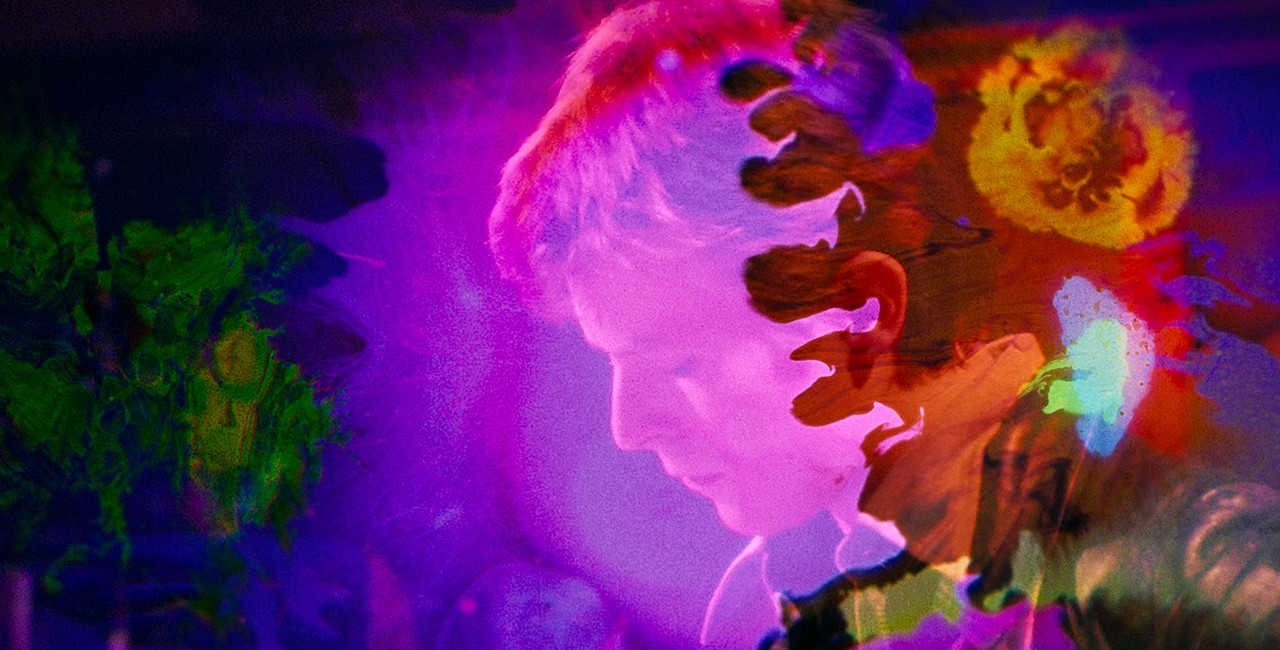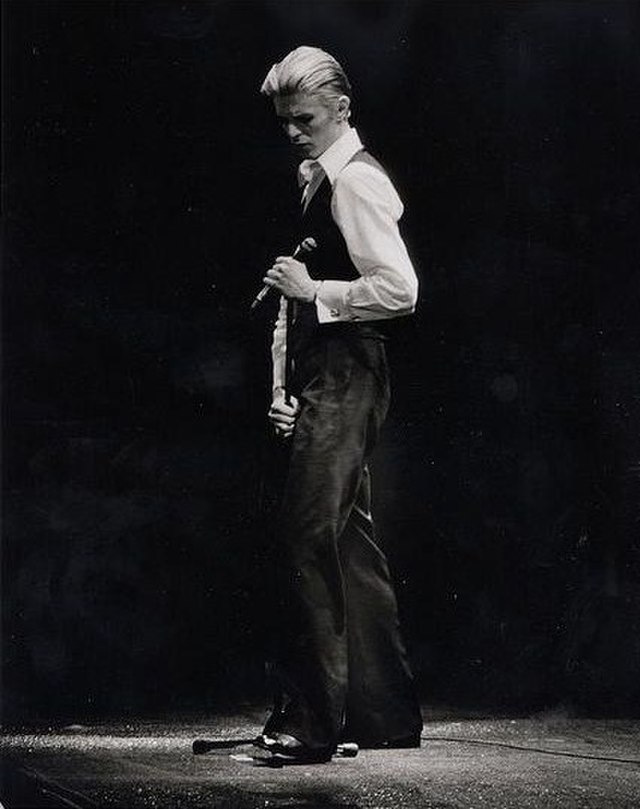Listeners:
Top listeners:
-
play_arrow
RSU Radio Real College Radio
-
 play_arrow
play_arrow
Stephen Egerton of Descendents June 7, 2016

[This film] is not about David Bowie. It’s not about David Jones. It’s Bowie in quotations. It’s meant to be a mirror so that you, the audience, can see your own Bowie and reflect back upon your own life. Because, to me, the most exciting thing is that you can go and see a film about David Bowie and learn how to be a better parent or learn how to lead a more satisfying life- not that he went into the studio [with] […] Freddie Mercury.” – Filmmaker Brett Morgen to NME, 2022
Does anyone remember that David Bowie biopic, “Stardust”, that was released in 2020? After being viciously ripped apart by fans and having its wide-release ruined by Covid-19, all to be critically massacred: I don’t blame you. I tracked it down upon its small release and let’s just say…it’s very bad. There is little to no music included (none of which was written by Bowie!) and proved to be a massive failure on every level. In my initial review, I made one thing clear: no one involved with the film truly understood what David Bowie was or stood for. Duncan Jones, filmmaker and son of David Bowie, warned fans upon the trailer’s release: “If you want to see [this] biopic [made] without […] the families blessing, that’s up to the audience.” Jones’ dad was very outspoken in his lifetime about never wanting a film made about his life, the most notable example being 1998’s “Velvet Goldmine”. It starred Johnathan Rhys Meyers as David Bowie, until the screenplay was changed to a David Bowie-adjacent rocker.

I had no idea about “Moonage Daydream” until I saw its galvanizing trailer in the theater. The film is directed, written, and edited by Brett Morgen, who whelmed the shockingly intimate Kurt Cobain documentary “Montage of Heck”. Morgen met with David Bowie in 2007 and pitched similar ideas, though it didn’t go well, ending in both men harshly critiquing the others’ work. Yet again, David would prove to dismiss any film being produced about his life. Yet the idea was revisited upon his untimely death in 2016. This led to years upon years of screening the Starman’s film and music archive, leading to over five million pieces of media being discovered. Now, he may not have wanted it, but it’s here: “Moonage Daydream” is available in theaters worldwide this weekend. Being the first and only film endorsed by the Bowie Estate, “Moonage Daydream” has been called “the greatest rock film of the decade” by Esquire Magazine.
I traveled approximately three hours to see the film twice in its IMAX setting, which was available for one week only, but the recommended version by it’s editor/director Brett Morgen. I agree, the film is made for IMAX, to the point where seeing it normally hinders the experience. I saw it again upon its wide release and your run-of-the-mill theater just cannot handle, nor give justice to, this film and its impressive and immersive sound design. We open on a black screen as the voice of one Mr. David Bowie travels the array of speakers, delivering a melancholic monologue about time. “One of the most complex expressions,” he says. After this, you’re shotgunned into a compilation of silent film footage (all of which, according to Morgen, were mentioned by and important to Bowie), while electronic deep-cut “Hallo Spaceboy” plays. A gripping introduction into an overall hypnotizing film. This Baz Luhrmann-esque, fast-paced editing style does not go away, but I enjoy it a majority of the time. Equally enthralling as it is exhausting.

There is no newly filmed footage or interviews, only Bowie himself narrates and stars, using edited lines and video from previous film appearances, concerts, etc. I must let you know, contrary to popular belief, this is not a film about music. Surprisingly, a majority of the film center on on religion, philosophy, and the life of a creative. Not just musicians, but sculptors, cinematographers, and more. It’s an implied portrait that will speak to you on many artistic levels. It’s absorbing to hear how David’s thoughts and opinions didn’t change throughout his career, though his words did. The way he said what he was thinking changed, not by his costume, but with his age. We see quite a few interviews, but every one is a different David Bowie. This is even more-so evident on the film’s bright, colorful video canvas. Time and time again there are truly striking visuals. My favorite was a mature, 90’s David Bowie staring at himself as a child while “Space Oddity” plays in a seemingly empty room, which is revealed to be a concert performance. Every song used, both live and in studio, was remixed/remastered by Bowie’s longtime collaborator Tony Visconti, and of course they sound great. A section in which “Heroes” (my favorite Bowie composition) was used is truly worth while. The companion album, Moonage Daydream – A Film by Brett Morgen, features some really cool “deconstructed” mixes, such as “DJ” and “Modern Love”. These are definitely worth checking out. Hearing elements of these songs I had never heard, yet there they were- clear as day in the IMAX setting- was well worth the price of admission alone.
In contrast, this film has no direction, plot, narrative, or quite literally much of anything. It’s pretentious in that way. “Moonage Daydream” feels as though it has already earned your attention to the point where it feels it doesn’t have to explain itself. Morgen debated this to CREEM Magazine and DEADLINE: “My hope [is] that people would experience the film the same way they listen to a Bowie album. We don’t learn about David […], we learn about ourselves. What can I offer that you can’t get in Wikipedia?” As there is no timeline, the viewer is left floating in a most peculiar way– which can be immensely off-putting. This is not helped by the multiple times the film thinks building a loud crescendo is presenting us with an idea. Sounds build, but they’re not saying much of anything, specifically in the “Cracked Actor” sequence. Quite honestly, “Moonage Daydream” continuously borders on incomprehensible. I believe 30-45 minutes (if not more) could have been cut. In the same vein, though- it doesn’t cover, highlight, or even mention anything post-1990. There are, admittedly, two clips and one instance of Blackstar, but anything else would lead you to believe David Bowie stopped making music after Let’s Dance. The film very generously picks and chooses the man it wants to portray. There is no mention of Bowie’s struggle with addiction, his cancer battle, nor any real struggle with mortality. David’s biggest problem in the film is “wanting to write better”. This leaves so many collaborators, friends, and colleagues out of the film completely. Besides Bowie (and the silent film stars), only his wife, Iman, and famed producer Brian Eno appear via photographs. While the notable admissions of Freddie Mercury and John Lennon have been acknowledged by Morgen, where are important figures such as Nile Rodgers? You know…everyone else that’s not Brian Eno? This seems to be another pretentious film-making choice that just makes “Moonage Daydream” feel small. If not one of music or art in general, then what is the basis for this film existing in the first place? I strongly believe that the influx of musician movies in the past decade have been designed to educate a new generation on past talent and this film doesn’t (want to?) do that. This inclined me to ask Morgen my own, similar question. He responds…
Saddle up! You’re in for a lifetime of magic. And don’t take the purple gel! https://t.co/L81aFZAxhb
— Brett Morgen (@brettmorgen) September 22, 2022
Is there Life on Mars? Is “Moonage Daydream” good? Well, the answers are the same: sure? It’s a lot. Some will understand and want to dig into the mess, some won’t. Worthy of multiple viewings, there will be no in-between. The film will speak to you, make you a better person, and, as David says at the end of the film, “appreciate life more”, or you will leave the theater wondering why someone had to make that “Bohemian Rhapsody” picture all those years ago. It’s quite literally Brett Morgen’s own character study of David Bowie and his time on Earth, so take that as you will. Some of us do that for free.
The film will not be steaming or released on home media until 2023, so I’d recommend buying tickets here.
Written by: Jace
David Bowie Film freddie mercury John Lennon kurt cobain moonage daydream Review

